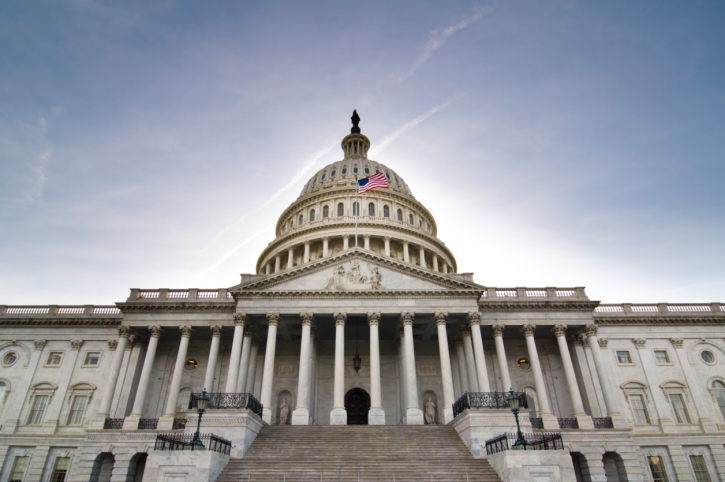Senators Call on HUD to Lower Fees on FHA Loans

U.S. Sen. Barbara Boxer (D-CA) and 17 colleagues have authored a letter to U.S. Department of Housing and Urban Development (HUD) Secretary Julian Castro asking him to ensure that fees on Federal Housing Administration (FHA) loans are priced appropriately both to cover expected losses and to serve the agency's mission to provide a path to homeownership for the many creditworthy families still unable to obtain affordable financing through the private market.
"With the improved outlook of the MMIF, we believe now is an appropriate time for the FHA to reexamine its premium levels to determine whether they can be reasonably and safely lowered," the Senators wrote. "While preserving the solid footing of the reserve fund is essential, reducing fees does not necessarily conflict with this goal. As any business knows, just as a price that is set too high will lead to less profit, not more, lowering the premium on qualified borrowers may actually produce greater revenue and fully restore the capital ratio more quickly."
In mid-November, the FHA released its annual report on its financial health, which showed that the agency had nearly fully recovered from losses that resulted from the housing crisis. According to the report, the FHA's Mutual Mortgage Insurance Fund (MMIF) had a positive "economic value" of $4.8 billion at the end of the 2014 fiscal year—a $21 billion improvement over the past two years—meaning the FHA now has more than enough money to cover all expected insurance claims over the next 30 years. The independent actuary also projected that the FHA's excess reserve fund would reach the Congressionally-mandated level of two percent by fiscal year 2016, and would continue growing well beyond that in the following years.
"We congratulate you on the vast improvement in the FHA's financial position and urge you to use this opportunity to ensure that premiums are set at a level that balances both sustainability and affordability," the Senators wrote.
The letter was also signed by Senators Robert Menendez (D-NJ), Charles E. Schumer (D-NY), Jeff Merkley (D-OR), Elizabeth Warren (D-MA), Barbara Mikulski (D-MD), Dianne Feinstein (D-CA), Patty Murray (D-WA), Richard Durbin (D-IL), Ben Cardin (D-MD), Bernie Sanders (I-VT), Jeanne Shaheen (D-NH), Kirsten Gillibrand (D-NY), Richard Blumenthal (D-CT), Chris Murphy (D-CT), Mazie Hirono (D-HI), Edward Markey (D-MA) and Cory Booker (D-NJ).
The full text of the letter follows:
Dear Secretary Castro:
We commend the successful work the Federal Housing Administration (FHA) has done in recent years to improve the financial position of its Mutual Mortgage Insurance Fund (MMIF). According to the recent independent actuarial report, the MMIF has seen a $21 billion improvement over the last two years to restore a positive net worth and is on target to achieve the congressionally-mandated 2 percent excess reserve by FY 2016, and to continue growing well beyond that in the following years.
The improved financial health of the MMIF has been achieved in part by raising the premiums borrowers pay for the FHA guaranty. While the increase in fees may have helped to cover losses incurred as a result of the financial crisis, it also came at a cost to new borrowers and to the FHA's mission to expand affordable homeownership opportunities.
The FHA has raised its annual premium 145 percent since 2010, meaning a borrower who takes out a $200,000 loan must now be able to pay $1,600 more per year in fees. According to the National Association of Realtors, these higher fees may have priced out as many as 375,000 potential homebuyers in 2013 from obtaining a mortgage. Meanwhile, the number of FHA home purchase loans has steadily declined since FHA began raising its fees and is now 30 percent below where it stood in the pre-bubble year of 2000. This decline comes at a time when traditional credit through the private market remains extremely tight and the housing market continues to underperform.
With the improved outlook of the MMIF, we believe now is an appropriate time for the FHA to reexamine its premium levels to determine whether they can be reasonably and safely lowered. While preserving the solid footing of the reserve fund is essential, reducing fees does not necessarily conflict with this goal. As any business knows, just as a price that is set too high will lead to less profit, not more, lowering the premium on qualified borrowers may actually produce greater revenue and fully restore the capital ratio more quickly.
Maximizing profit, however, should not be the only driver in determining the appropriate fee level on FHA loans. While premiums must be sufficient to cover expected losses and achieve a two percent excess reserve, the FHA guarantee should also be priced appropriately to serve the agency's mission and provide a path to homeownership for the many creditworthy families still unable to obtain affordable financing through the private market.
We congratulate you on the vast improvement in the FHA's financial position and urge you to use this opportunity to ensure that premiums are set at a level that balances both sustainability and affordability. Thank you for your consideration of this issue and we look forward to hearing back from you.





